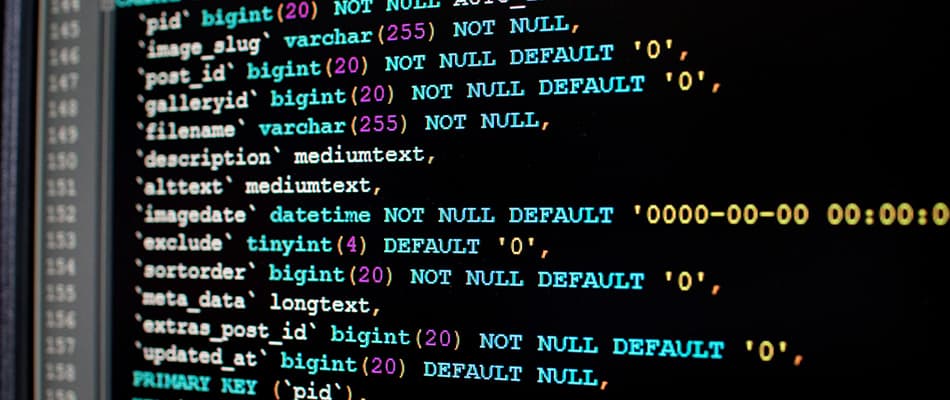What are Capex and Opex in Cloud Computing? Learn the Core Components, Importance, and Impact Here!
In cloud computing, Capex (Capital Expenditure) and Opex (Operational Expenditure) refer to different financial approaches for managing costs associated with IT infrastructure. Capex involves upfront investments in physical hardware and long-term assets, often requiring large capital outlays. In contrast, Opex refers to ongoing costs for services and resources consumed on a pay-as-you-go basis, offering more flexibility and scalability. Knowing how businesses manage their costs is crucial to their financial strategy in cloud computing.
This article will explore what is capex and opex in cloud computing, their core components, their impact.
What are Capex and Opex in Cloud Computing?
Understanding what is CapEx and OpEx in cloud computing is crucial for managing cloud costs. CapEx (Capital Expenditure) involves upfront spending on physical hardware, such as servers or data centres, which the company owns as long-term assets. In contrast, OpEx (Operational Expenditure) covers ongoing costs, like subscription fees or pay-as-you-go cloud services, offering more flexibility in managing expenses. OpEx is popular because it allows businesses to pay for resources only when needed, offering flexibility and lower initial costs. This approach helps companies scale operations quickly and manage budgets more effectively without the high expense of owning and maintaining their own infrastructure.
Core Components of Capex and Opex
To effectively understand what CapEx and OpEx are in cloud computing and how they impact cloud computing costs, it’s important to explore their core components. Each expenditure model represents a distinct approach to financing IT resources, and knowing the components of each helps businesses optimise their cloud strategy.
Components of Capex in Cloud Computing:
- Initial Hardware Investment – This refers to the money spent on buying servers, storage systems, and network equipment needed for the business.
- Data Centre Costs – These are the expenses involved in building and maintaining on-site data centres.
- Depreciation – This is the gradual loss in hardware value over time, which businesses need to consider in their financial planning.
- Maintenance – Regular servicing and equipment upgrades are necessary to keep the infrastructure running smoothly.
- Software Purchases – Businesses often need to make one-time purchases of essential software for their operations.
Components of Opex in Cloud Computing:
- Subscription Fees – These are the regular payments made for using cloud services, often monthly or annual.
- Service Costs – This includes charges for specific features or resources within the cloud, such as data processing or storage.
- Scalability Costs – Businesses pay for scaling resources up or down as their needs change, making it a flexible option.
- Support Services – These fees cover technical assistance and managed services provided by the cloud provider.
- Utility Costs – These are part of the cloud fees and include expenses for power and cooling in the cloud provider’s data centres.
Importance of Capex and Opex in Cloud Computing
To understand what is Capex and Opex in cloud computing, knowing its importance can have a deeper effect. Capex and Opex are important in their influence on an organisation’s financial strategy, particularly in cloud computing environments. Both expenditure models serve distinct purposes and have significant implications for businesses’ budgeting, scalability, and overall financial health. Capex offers long-term stability, while Opex provides flexibility and easy scaling. Below are the ways that show the importance of capex and opex in cloud computing:
Importance of Capex in Cloud Computing:
- Long-term Investment – Capex gives companies full ownership of their IT infrastructure, allowing them to customise and control their resources.
- Predictable Costs – Upfront costs are fixed, making it easier for businesses to plan and budget over time.
- Depreciation Benefits – Companies can spread the cost of assets over the years, offering tax benefits.
- Better Security and Control – Owning the infrastructure allows more control over data security and compliance, which is vital for sensitive information.
Importance of Opex in Cloud Computing:
- Cost Flexibility – Opex lets companies pay only for what they use, making it easier to adjust costs as needed.
- Lower Initial Expenses – Businesses can avoid significant upfront costs, which is helpful for startups or those with limited budgets.
- Quick Scalability – Companies can access more resources when needed, allowing them to respond faster to growth.
- Easy Budgeting – Regular, predictable monthly expenses help with simple financial planning and reduce unexpected costs.
Both CapEx and OpEx have their benefits, allowing companies to choose the best model for their needs and future plans.
Impact of Capex and Opex in Cloud Computing
Understanding what is CapEx and OpEx in cloud computing helps businesses manage costs. CapEx is the upfront money spent on physical infrastructure, while OpEx is the ongoing cost of using cloud services. Both affect how companies handle their budgets. The right choice depends on the company’s financial goals and how much flexibility they need. Each model offers benefits that can help businesses manage their cloud spending better. Below explained is the impact of capex and opex in cloud computing:
Impact of Capex on Cloud Computing:
- Financial Commitment – Capex in cloud computing means businesses need to spend a lot of money upfront on infrastructure. This can reduce cash flow and limit funds for other important business needs.
- Ownership and Control – Capex lets businesses fully own and control their hardware and systems. This allows for customisation but also means more work and costs for maintenance and upgrades.
- Strategic Investment and Long Term Planning – Capex helps businesses make clear, long-term plans by investing in cloud infrastructure upfront. This way, companies can secure the resources they need for growth without worrying about unexpected costs.
- Scalability Opportunities – With Capex, businesses can easily expand their cloud resources when necessary. This gives them full control over their growth while ensuring their financial plans stay on track.
Impact of Opex on Cloud Computing:
- Cost Flexibility – Opex lets businesses pay only for what they use, making it easier to manage expenses. This helps them adjust spending as needed.
- Lower Upfront Costs – Opex reduces the need for large initial investments, making it easier and more budget-friendly for businesses to start using cloud services.
- Scalability and Agility – Opex allows businesses to quickly add or reduce resources as needed. This helps them respond faster to changes and new demands.
- Maintenance and Management – With Opex, the cloud provider takes care of maintenance. This reduces the work and costs for the company’s IT team.
- Cash Flow Management – Regular, smaller payments with Opex improve cash flow. This helps businesses use their money more flexibly and invest in other important areas.
Learn Cloud Computing with Digital Regenesys
Digital Regenesys offers a Cloud Computing and DevOps Course with AI/ML that helps you learn how to build and manage cloud systems using AWS and Azure. This course is ideal for beginners and professionals looking to gain knowledge in cloud computing and related fields. As you learn cloud computing, knowing what is Capex and Opex in Cloud Computing can help you understand how to manage costs better. You will also explore advanced topics like AI-driven DevOps tools and apply them to real-world scenarios. With a Capstone Project included, the course prepares you for career roles such as DevOps Engineer or Azure Cloud Administrator.
Here are the benefits of enrolling in a cloud computing course at Digital Regenesys:
- Practical Learning – Gain hands-on experience through real-world projects and practical exercises.
- Expert-Led Training – Learn from industry experts with deep knowledge in cloud computing, DevOps, and AI.
- Detailed Curriculum – Understand cloud management with AWS and Azure, along with AI-driven DevOps tools.
- Capstone Project – Complete a project that helps you apply what you’ve learned and prepares you for real job roles.
- Flexible Learning – Access online learning options that fit your schedule and learning pace.
- Latest Updates – Stay updated with the latest tools and technologies in cloud computing, AI, and DevOps.
- Resume Boost – Strengthen your resume with valuable cloud computing and DevOps certifications.
- Supportive Environment – Benefit from mentorship and support throughout the course to help you succeed.
Thus, understanding what is Capex and Opex in cloud computing is important for making smart financial choices. Capex gives businesses ownership and long-term stability but needs a big upfront cost. Opex is more flexible, with lower starting costs and easy scaling when needed. Both have their benefits, so companies should choose based on their budget and goals. By knowing the key parts and effects of Capex and Opex, businesses can manage their cloud strategies better and run more cost-effective operations.
FAQ: What is Capex and Opex in Cloud Computing?
What is Capex and Opex in cloud computing?
Capex means upfront spending on things like servers, while Opex is ongoing costs like subscriptions for cloud services.
What are the main parts of Capex in cloud computing?
Capex includes hardware costs, building data centres, maintenance, depreciation, and one-time software purchases.
What are the main parts of Opex in cloud computing?
Opex includes subscription fees, service costs, scaling resources, support services, and utility expenses.
Why is it important to know what is Capex and Opex in cloud computing?
It helps businesses choose the best way to manage their budget, with CapEx offering stability and OpEx offering flexibility.
What impact do Capex and Opex have in cloud computing?
Capex means higher initial costs but ownership, while Opex offers lower initial costs and easy scaling.
Recommended Posts













